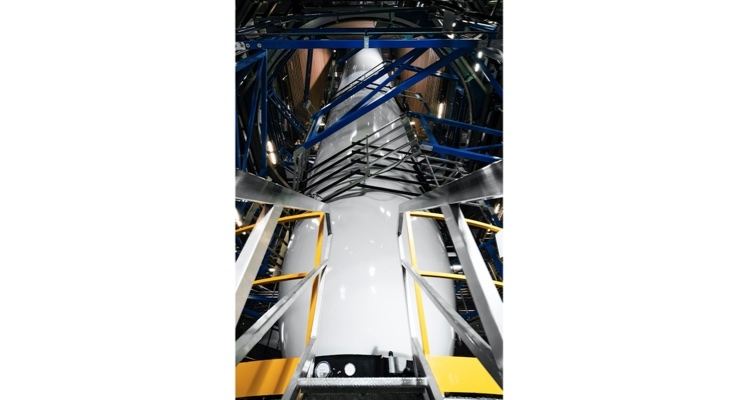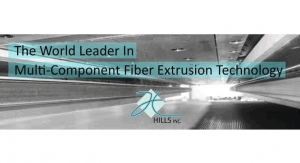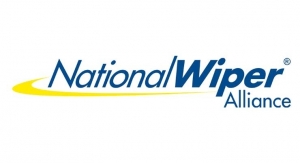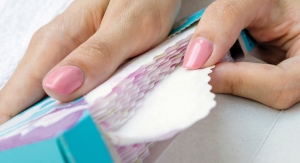03.25.19
RKW has put into operation its new multilayer extrusion plant at the site in Hoogstraten/Belgium. The new e7 technology line enables the efficient production of various films for applications in agriculture and horticulture and increases RKW’s agricultural production capacity by more than 10%. Farmers and horticulturists benefit from improved film properties. RKW already expanded its extrusion capacities for agricultural films at its site in Michelstadt in 2018.
Focusing on international growth markets, RKW has invested a double-digit million amount in the technical infrastructure and additional production capacities in its agriculture business. “We continuously improve our products and own brands to the benefit of end customers. Our investments in our agricultural Centers of Competence Michelstadt and Hoogstraten not only add further capacities but also enable us to offer the highest added value”, says Paul Leenders, vice president Agriculture at RKW and general manager in Hoogstraten.
The new e7 technology line opens up new opportunities to develop innovative solutions. “Regarding the different layers of the film, we can leverage our expertise in development and production and always deliver the best possible outcomes,” explains Dr. Estelle Cheret, head of R&D Agriculture. “Each layer can be produced with precisely defined properties.”
In product development, RKW focuses on special silage and barrier films, silo bags and greenhouse applications.
Films and bags for agriculture and films for horticulture benefit from the seven-layer system. The films with a width of eight up to 18 meters (26' - 59') and bags up to 14' are more resistant to mechanical stress; they are lighter and suited for a broader range of applications. This leads to easier handling and higher work efficiency in the agricultural and horticultural area. In particular, greenhouse films feature increased performance regarding thermic and surface modification. At the same time, lighter films translate into reduced transportation, which means less CO2 emission, and fewer resources required in production. As all agricultural products from RKW, the new films can be fully recycled in an environmentally friendly manner or thermally reused in secure fashion.
In all phases of a product’s life from its inception to the end of its life, RKW strives to protect natural resources, to reduce emissions, to avoid waste and environmental pollution, and to optimize logistics. RKW is a member of many associations and organizations concerned with sustainability, and is also active in many areas, for example, through its efforts to reduce film thickness, through developing environmentally friendly solutions, and in the Zero-Pellet Loss Initiative with the goal of minimizing the loss of plastic pellets throughout the process chain.
With its e7 technology, RKW supports customers to meet the ever-increasing challenges in terms of cost, time pressure and sustainability requirements. e7 stands for RKW’s ‘excellence to the power of 7’, which means increased performance in seven dedicated areas:
Focusing on international growth markets, RKW has invested a double-digit million amount in the technical infrastructure and additional production capacities in its agriculture business. “We continuously improve our products and own brands to the benefit of end customers. Our investments in our agricultural Centers of Competence Michelstadt and Hoogstraten not only add further capacities but also enable us to offer the highest added value”, says Paul Leenders, vice president Agriculture at RKW and general manager in Hoogstraten.
The new e7 technology line opens up new opportunities to develop innovative solutions. “Regarding the different layers of the film, we can leverage our expertise in development and production and always deliver the best possible outcomes,” explains Dr. Estelle Cheret, head of R&D Agriculture. “Each layer can be produced with precisely defined properties.”
In product development, RKW focuses on special silage and barrier films, silo bags and greenhouse applications.
Films and bags for agriculture and films for horticulture benefit from the seven-layer system. The films with a width of eight up to 18 meters (26' - 59') and bags up to 14' are more resistant to mechanical stress; they are lighter and suited for a broader range of applications. This leads to easier handling and higher work efficiency in the agricultural and horticultural area. In particular, greenhouse films feature increased performance regarding thermic and surface modification. At the same time, lighter films translate into reduced transportation, which means less CO2 emission, and fewer resources required in production. As all agricultural products from RKW, the new films can be fully recycled in an environmentally friendly manner or thermally reused in secure fashion.
In all phases of a product’s life from its inception to the end of its life, RKW strives to protect natural resources, to reduce emissions, to avoid waste and environmental pollution, and to optimize logistics. RKW is a member of many associations and organizations concerned with sustainability, and is also active in many areas, for example, through its efforts to reduce film thickness, through developing environmentally friendly solutions, and in the Zero-Pellet Loss Initiative with the goal of minimizing the loss of plastic pellets throughout the process chain.
With its e7 technology, RKW supports customers to meet the ever-increasing challenges in terms of cost, time pressure and sustainability requirements. e7 stands for RKW’s ‘excellence to the power of 7’, which means increased performance in seven dedicated areas:
- Quality: consistent product performance
- Efficiency: optimum price-performance ratio
- Innovation: driver for new products
- Versatility: wide fields of application
- Sustainability: resource-saving recipes
- Service: expert advice
- Commitment: reliable partnership


















